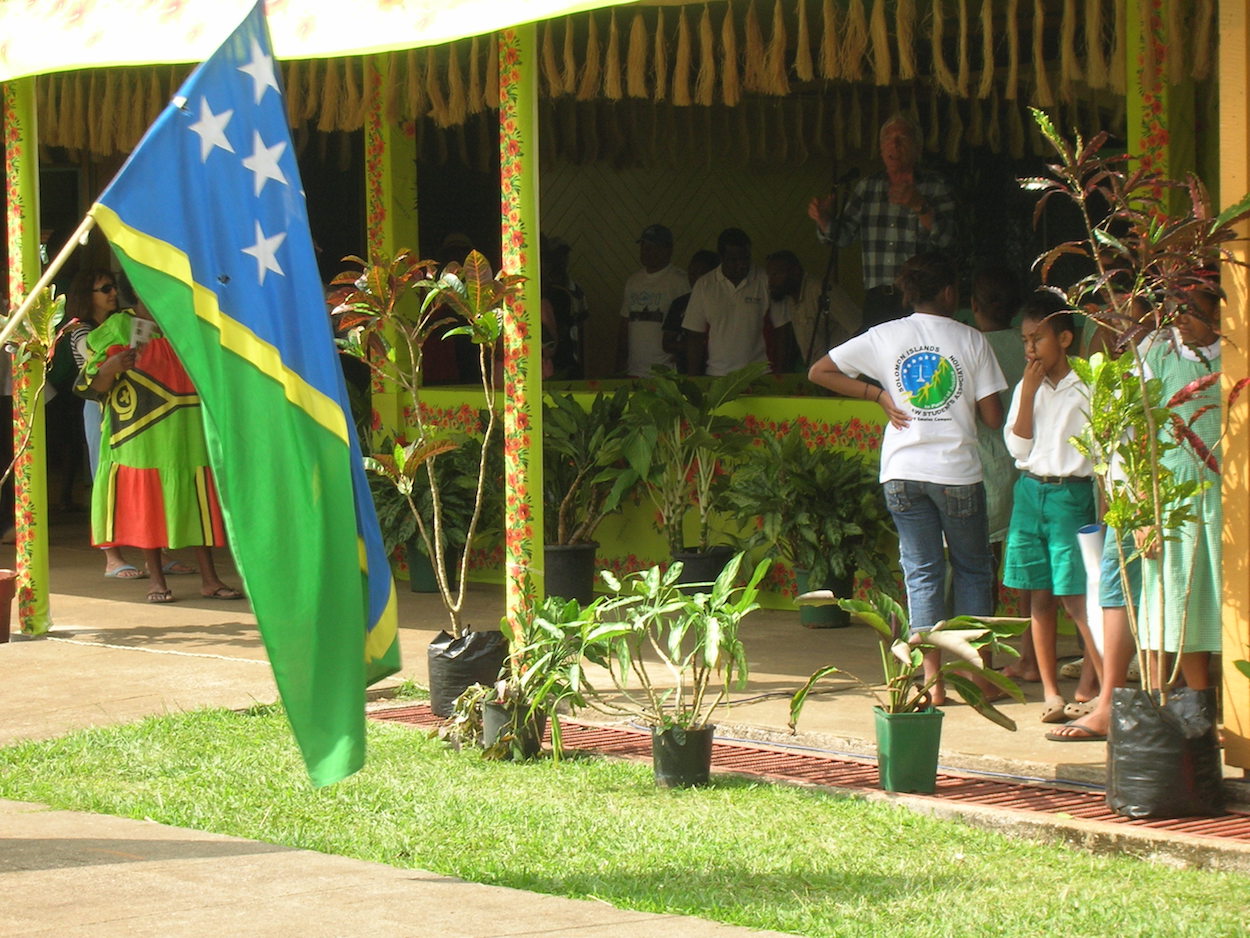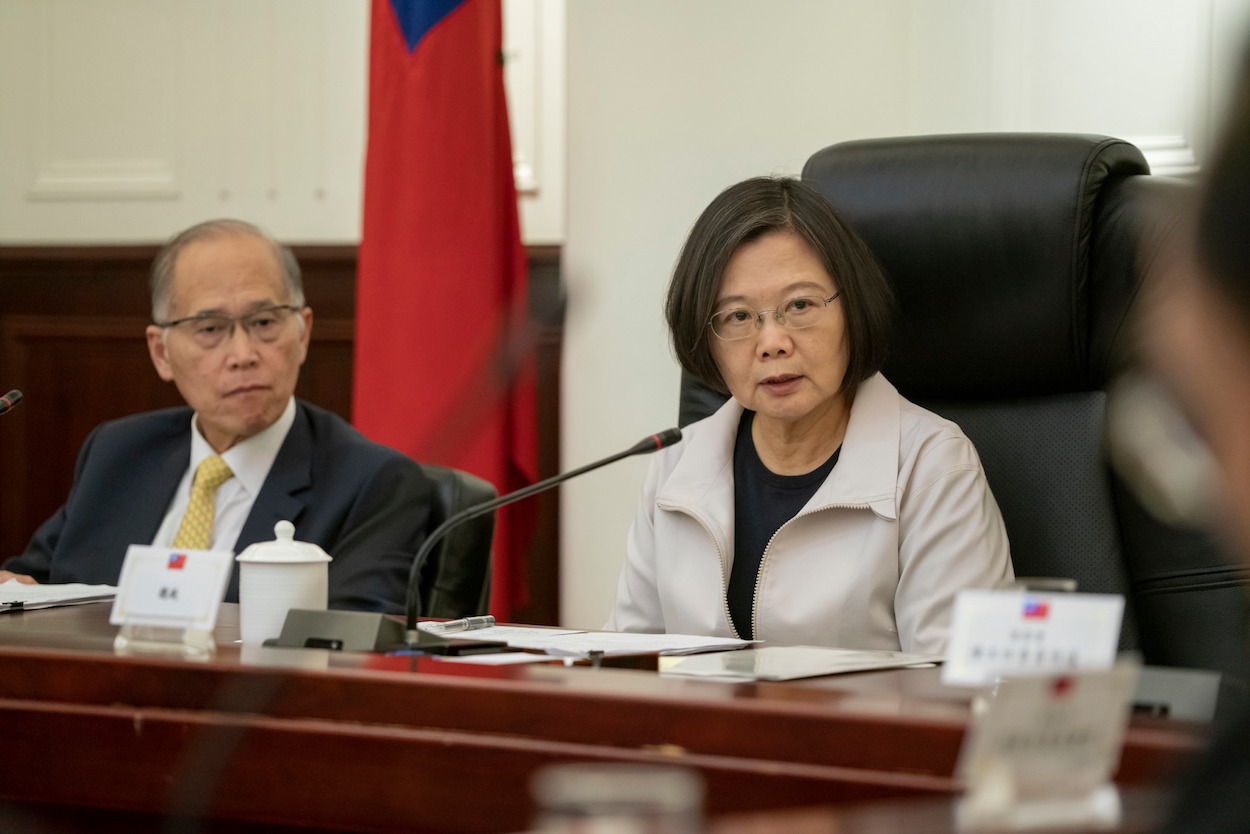by Brian Hioe
語言:
English
Photo Credit: Tsai Ing-wen/Facebook
THE TAIWANESE GOVERNMENT announced that it was breaking diplomatic ties with the Solomon Islands on Tuesday, after a vote by the Solomon Island’s coalition government caucus in favor of ending diplomatic relations with Taiwan and establishing relations with China. It is not unusual for Taiwan to preemptively break diplomatic relations with allies that it knows are about to switch recognition to China, likely as a face-saving measure.
Taiwan now only has sixteen remaining diplomatic allies. The Solomon Islands, which is many times smaller than Taiwan with a population of 600,000, was the largest of Taiwan’s Pacific allies. The four remaining nations in the Pacific that recognize Taiwan are Kiribati, the Marshall Islands, Nauru, Palau, and Tuvalu, the populations of which are smaller than the Solomon Islands combined.
 Photo credit: Julie Lynn/WikiCommons/CC
Photo credit: Julie Lynn/WikiCommons/CC
As such, it is feared that the Solomon Island’s change in diplomatic recognition could precipitate a domino effect of other Pacific allies of Taiwan’s switching recognition to China. Closer ties with Pacific nations could potentially serve to extend China’s geopolitical influence along Pacific oceanic routes.
Diplomatic allies that Taiwan has lost during the Tsai administration’s three and a half years in office include Burkina Faso, the Dominican Republic, El Salvador, Panama, and Sao Tome and Principe, making the Solomon Islands the sixth country to break ties under the Tsai administration. Although China refrained from poaching Taiwan’s few remaining diplomatic allies during the pro-China Ma administration, China resumed this practice once the Tsai administration took power. In particular, the KMT uses Taiwan’s loss of diplomatic allies as a way to attack the Tsai administration’s foreign policy, claiming that this is another sign of how the Tsai administration’s actions are dangerously provocative of China.
Taiwan claimed that it was breaking with the Solomon Islands due to a refusal to engage in dollar diplomacy and to compete in outspending China in order to retain diplomatic relations with China. That being said, again, Taiwan is larger than all of its diplomatic allies in terms of the size of its economy and population, these primarily being Latin American and Pacific nations. A number of Taiwan’s diplomatic allies have questionable human rights records which the Taiwanese government has turned a blind eye to. As such, the Taiwanese government has been accused of providing financial incentives to corrupt regimes in return for diplomatic recognition, particular examples being Honduras, in which an undemocratic regime currently holds power, and eSwatini, one of the world’s few remaining absolute monarchies.
The Solomon Islands breaking ties with Taiwan took place after a period of uncertainty about whether the Solomon Islands would do so. Recently elected prime minister Manasseh Sogavare lashed out at diplomatic relations with Taiwan in a podcast earlier this month, stating that “When it comes to economics and politics, Taiwan is completely useless to us.” A task force was assembled to investigate the possibility of changing recognition to China, though the Taiwanese government later criticized the report produced by this task force as misleading, citing that the task force did not travel to Taiwan as part of its investigation even if members of it visited Taiwan as part of diplomatic delegations.
Some in the Solomon Islands view closer ties with China as potentially giving the nation an edge in negotiating with western powers. Others argue that the Solomon Islands is at risk of dragging itself into a debt trap, seeing as the country already has a high level of debt and it may not be able to absorb additional borrowing from China. The Central Bank of the Solomon Islands was, notably, not in favor of the move to recognize China in Taiwan’s stead and a protest took place on the island of Malaita after news broke of the switch in recognition. Still others have pointed to how the Solomon Island’s political leaders have decided to steer the country in the direction of closer relations with China without adequately consulting the people.
 Taiwanese president Tsai Ing-wen. Photo credit: Tsai Ing-wen/Facebook
Taiwanese president Tsai Ing-wen. Photo credit: Tsai Ing-wen/Facebook
President Tsai Ing-wen stated in public comments that the morale of the Taiwanese people would not be damaged by the loss of yet another diplomatic ally. As actions by China to pry away diplomatic allies from Taiwan may be with the aim of negatively impacting Tsai’s reelection chances in January 2020 elections, it is to be seen if China will engineer the loss of more diplomatic allies between now and then.
That being said, one notes the unusual development of bipartisan American condemnation of the Solomon Islands by American senators as Republicans Marco Rubio and Cory Gardner. Both suggested that the US would take measures against the Solomon Islands for its de-recognition of Taiwan—an ironic and hypocritical comment, given that both were advocating punishment against the Solomon Islands for an action that America itself undertook in 1979, when America recognized the People’s Republic of China in place of the Republic of China. Likewise, such measures would mean punishing the people of the Solomon Islands for the actions of their political leaders.
Rubio and Gardner call for the quick passage of the TAIPEI Act, intended to retaliate against countries for breaking diplomatic relations with Taiwan, never mind that the US itself does not recognize Taiwan. But this sort of political hypocrisy from America should be of little surprise.

